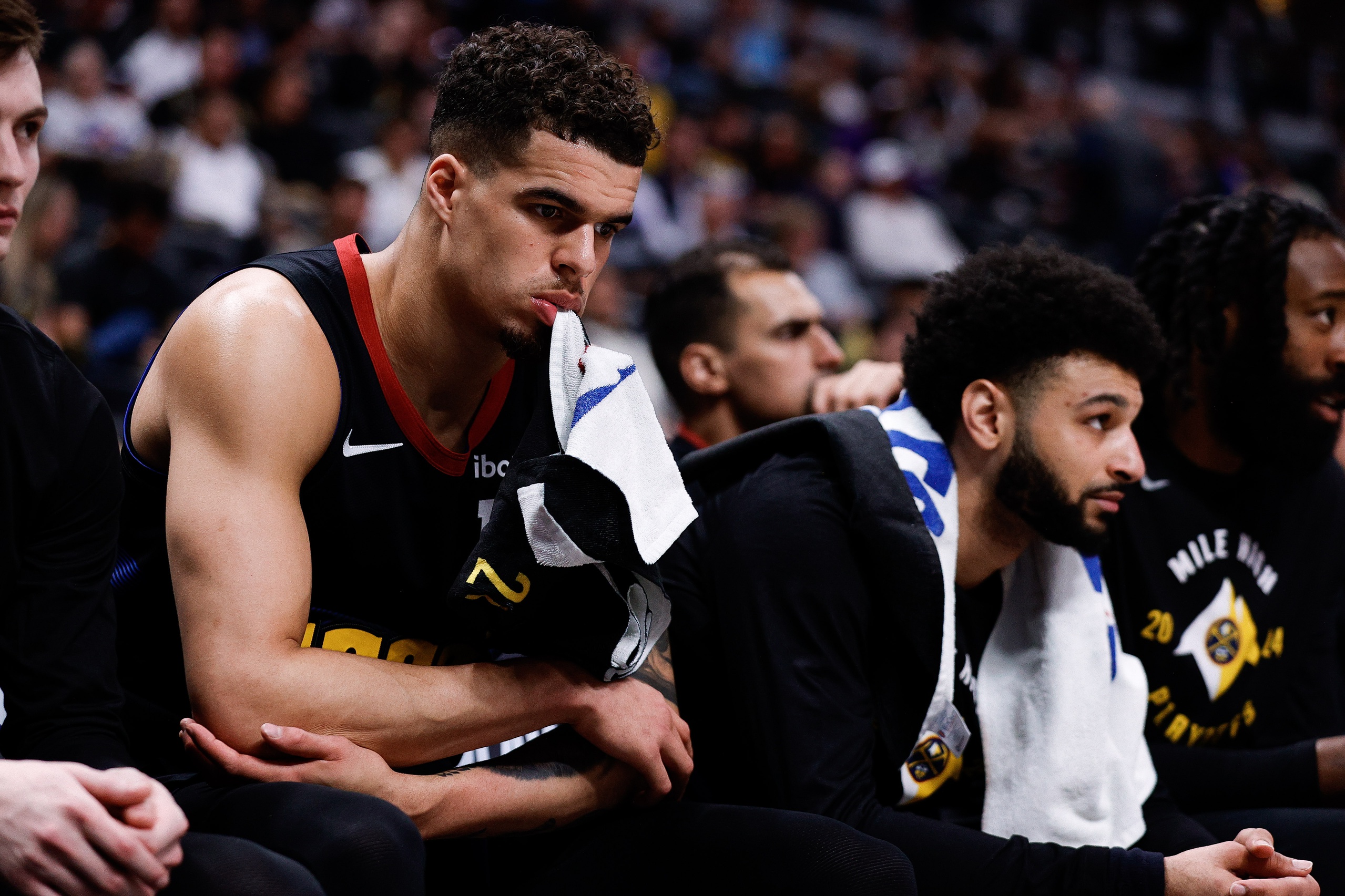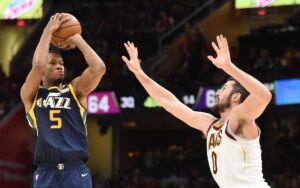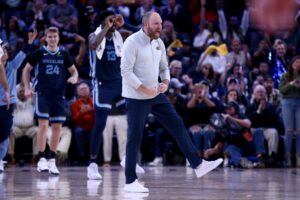After battling through multiple back surgeries, Denver Nuggets forward Michael Porter Jr. is just happy to be here.
“I would have played this game for free as long as I could eat,” Porter tells Austin Rivers on the Off Guard podcast.
However, while Porter’s determination to live out his NBA dream is admirable, it hasn’t shielded him from criticism. Some of this stems from his beliefs off the court, from his comments about women’s basketball to his identity as an evangelical free-thinker. Nonetheless, most of the chastisement comes from Porter’s play.
In his conversation with Rivers, an 11-year veteran who was Porter’s teammate for a little more than a season, Porter admits that his contract has affected people’s perception of him. In turn, he’s become a bit jaded.
“I would play basketball, you know, before my injuries,” he says. “You know, now it’s a little different, like it sometimes feels like a job, but I love basketball so much. I would have played this game for free as long as I could eat. I loved it. So like, the money-that was never my goal. My goal was to be like, take this as far as I could take it, be as good as I could be.
So man, the money almost honestly sometimes makes it a little bit harder to enjoy the game because with a max contract comes a lot of expectations on consistency, on you’re supposed to be an All-Star, you’re supposed to be this, that, whatever they say.”
Nuggets’ Michael Porter Jr. Has Polarizing Stance About Contract
For many, Porter’s comments will sound like an unnecessary complaint.
For starters, most people don’t want to hear multi-millionaires say that their job is too hard, particularly in fields like sports or entertainment. While nobody would deny that great players, musicians, actors and the like have had to put in the work to get where they’re at, they’re not seen as the most arduous career paths one could take. In the case of basketball, the bottom line is that these are individuals who are getting paid handsomely to play a game.
However, there’s a secondary issue that arises with Porter’s statement. It sounds as if he doesn’t like the pressure that comes along with his payment. If assessing his psychological makeup, it’s now fair to question his competitiveness or killer instinct.
Do The Criticisms Make Sense?
To Porter’s point, the expectations that people have are reflected in a player’s earnings. Based on those contracts, a player’s reputation could change. For example, the criticisms of Chicago Bulls guard Zach LaVine have been consistent throughout his career. When people discuss why his trade value is so low, it’s not because he’s regressed in any area. The focus is on how much LaVine earns; the relationship between his performance and salary.
MPJ Is Only Getting Better
In Porter’s case, he’s actually improved upon his biggest weakness. When he first broke into the Nuggets’ rotation, his stiff surgically-repaired back and lack of lateral mobility made him a defensive sieve. Now, Porter is a more or less reliable on-ball defender. He isn’t being expected to lock up the likes of Milwaukee Bucks superstar Giannis Antetokounmpo. Nonetheless, he can hold his own against starting-caliber forwards.
Yet, after signing a five-year contract extension that could be worth as much as $207 million in 2021, expectations changed. Porter being better than he was before isn’t good enough. He needs to be, as he says, an All-Star-caliber performer. Of course, with how much popularity plays into All-Star selections, whether he makes the team won’t always come down to his play. For that reason, he doesn’t have to actually be named an All-Star. For instance, teammate Jamal Murray is widely considered to be one of the best guards in the NBA, but has never been an All-Star.
Nonetheless, he has to look the part. To this point, he hasn’t.
This isn’t all on him. Nuggets head coach Michael Malone is arguably a bit too fixated on running Denver’s offense through Murray and Nikola Jokic. However, there are improvements that Porter could make to convince Malone to put the ball in his hands more. The easiest way may be by using his scoring gravity to create opportunities for his teammates. Though he’s undoubtedly a shoot-first player, Porter’s also become a quicker decision-maker, giving up the ball when he doesn’t feel or see a shot. The next step could be becoming a better playmaker. His becoming a better scorer off-the-dribble or in the post could help as well.






